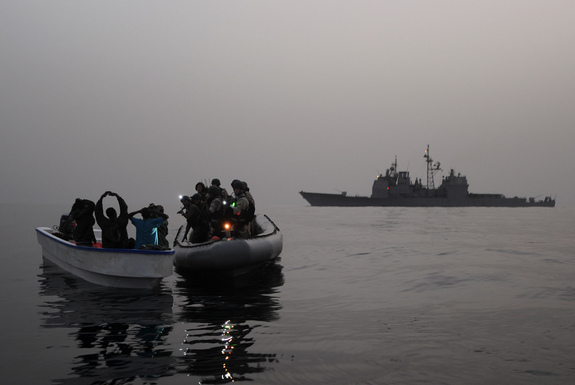Surprising Somali Pirate Victim: Science


A large "data hole" has emerged in the Indian Ocean near the Horn of Africa thanks to the marauding of legions of Somali pirates, who attack and take over ships of all sorts in an effort to gain ransom money, National Geographic reports.
The hostages and ships taken by the pirates are what gain headlines, but the rampant piracy also keeps scientific ships and expeditions away, especially those that drill on the ocean floor, affecting fields from anthropology to climatology. "This problem has been going on a long time and with virtually no public awareness," Sarah Feakins, who studies Earth's ancient climates and whose work has been stymied by piracy, told National Geographic.
And the problem ripples outward from the scientific community: A gap in wind and other weather measurements over an area of 960,000 square miles (2.5 million square kilometers) of open sea has left a hole in climate models, affecting forecasts of a wind pattern that is one of the main drivers of the Indian summer monsoon, making it harder to predict when and how much rain will fall on key agricultural areas in Asia, Africa and the Middle East.
Follow Andrea Thompson @AndreaTOAP, Pinterest and Google+. Follow OurAmazingPlanet @OAPlanet, Facebook and Google+.
Get the world’s most fascinating discoveries delivered straight to your inbox.

Andrea Thompson is an associate editor at Scientific American, where she covers sustainability, energy and the environment. Prior to that, she was a senior writer covering climate science at Climate Central and a reporter and editor at Live Science, where she primarily covered Earth science and the environment. She holds a graduate degree in science health and environmental reporting from New York University, as well as a bachelor of science and and masters of science in atmospheric chemistry from the Georgia Institute of Technology.


